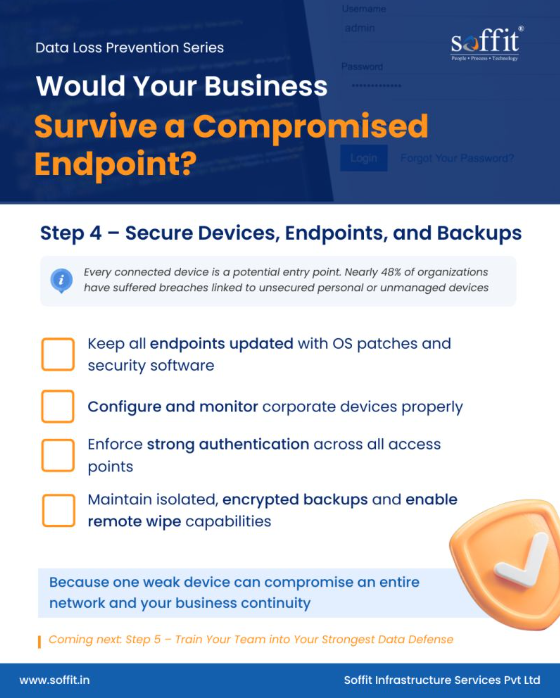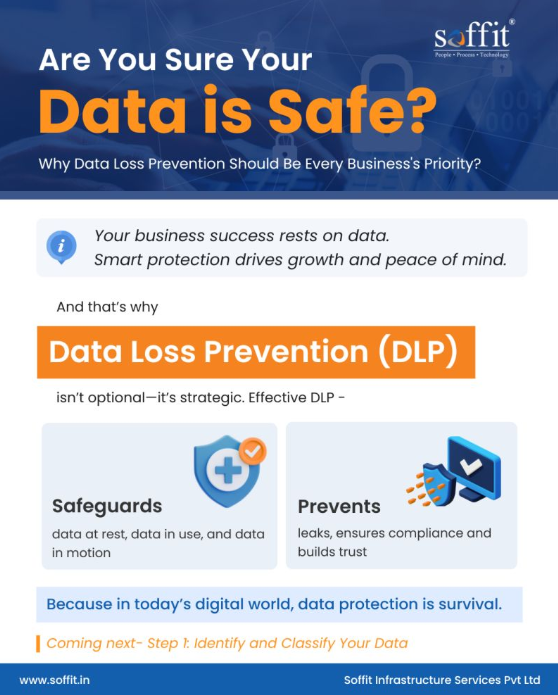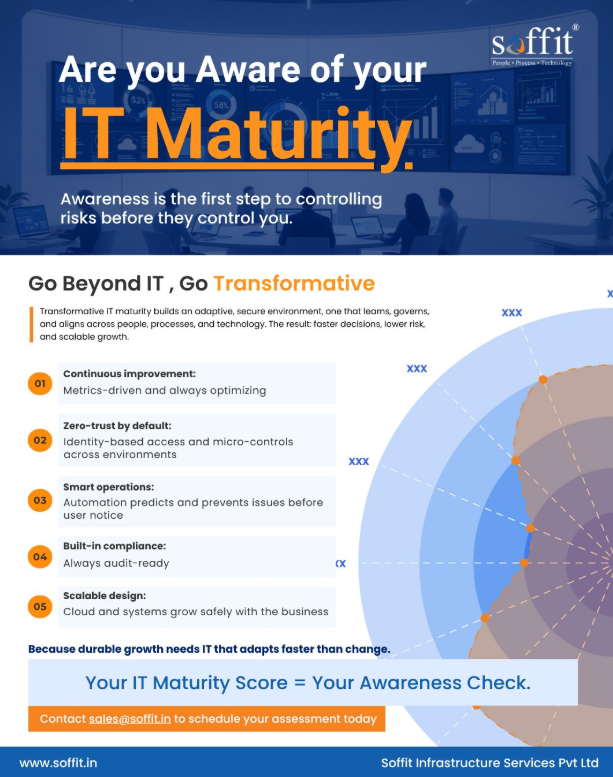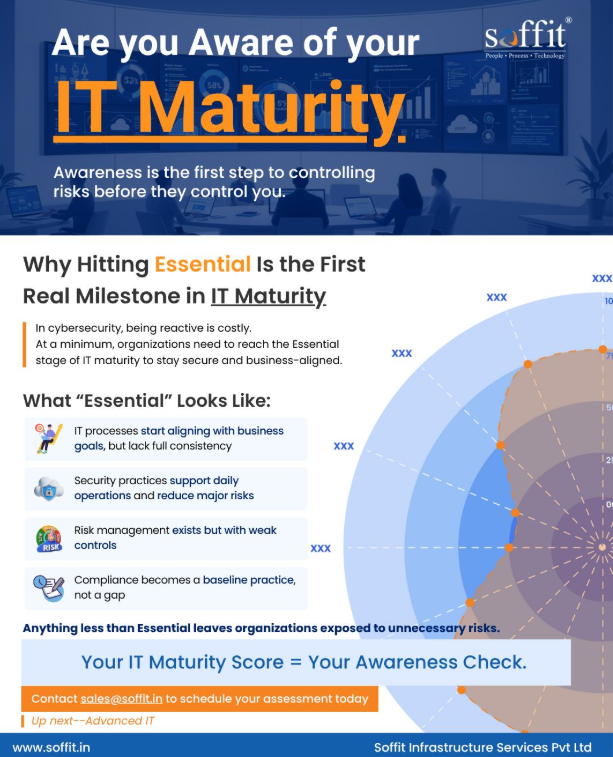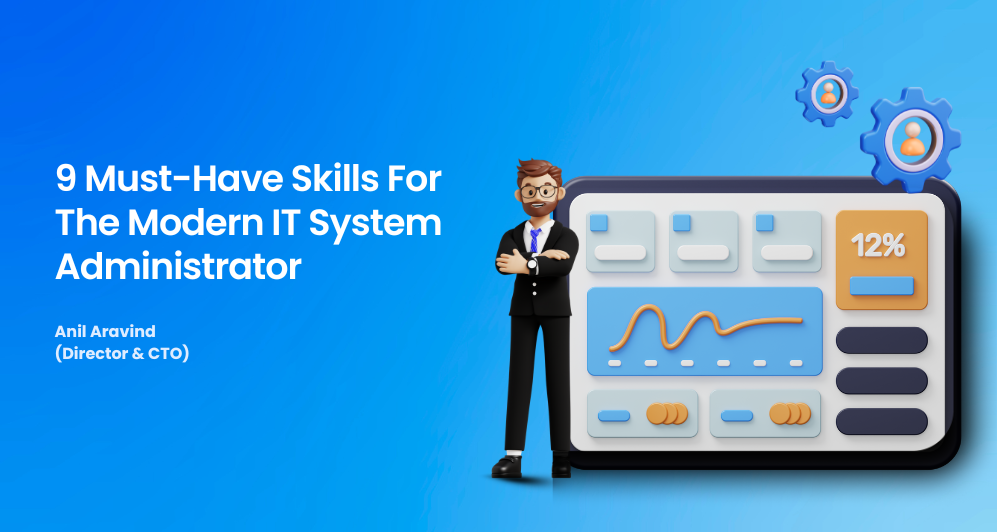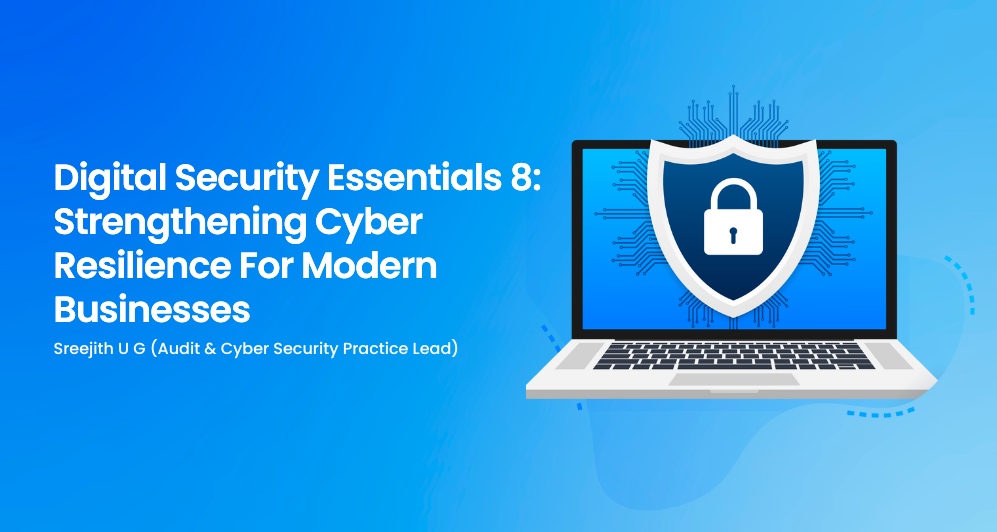
Heading
Lorem ipsum dolor sit amet, consectetur adipiscing elit. Suspendisse varius enim in eros elementum tristique. Duis cursus, mi quis viverra ornare, eros dolor interdum nulla, ut commodo diam libero vitae erat. Aenean faucibus nibh et justo cursus id rutrum lorem imperdiet. Nunc ut sem vitae risus tristique posuere.
Last updated on
October 14, 2025
min read
In today's hybrid business environment, technology plays a critical role in driving operational efficiency and productivity. However, enterprises are exposed to significant IT infrastructure risks, such as downtime and cyber threats, which can result in reputational damage and financial losses. According to Cybersecurity Ventures research global cybercrime damage is expected to reach $10.5 trillion annually by 2025. To mitigate these risks, businesses must have a robust IT infrastructure management strategy. Increasingly, outsourcing IT infrastructure management to a managed service provider (MSP) is becoming the preferred solution due to its numerous benefits. This blog post outlines the benefits of managed IT infrastructure services and the criteria businesses should consider when selecting an outsourcing partner.
What Constitutes Effective Infrastructure Management via MSP?
IT infrastructure management is like running a castle that needs to be defended at all times. Just as a castle needs a deep moat, strong walls, and vigilant knights to keep it safe, a business needs a secure IT infrastructure to protect it from cyber threats and ensure it functions smoothly.
Managed IT infrastructure services act as your personal team of IT knights, taking on the responsibility of keeping your castle secure and functioning smoothly. By outsourcing IT services to a third party, commonly referred to as managed IT services, you can gain access to expertise, scalability, and improved security, while freeing up your own resources to focus on your core business activities.
The scope of services offered by MSPs can range from basic network and server management to core services like cloud and data center management. MSP takes full responsibility for managing the entire IT operation, providing a range of processes and practices to ensure smooth functioning, including proactive monitoring, regular support, and 24/7 assistance.
Business Benefits of Outsourcing Infrastructure Management to an MSP
According to the ResearchAndMarkets report, the global managed services market is expected to grow from $299.01 billion to $731.08 billion (at a CAGR of 13.6%) between 2023 and 2030, indicating the increasing recognition of the benefits of managed services, including improved security, efficiency, and access to cutting-edge technologies. The advantages of managed IT services are manifold and are discussed below:
Focus on core business
By outsourcing IT infrastructure management to an MSP, you can free up your internal IT team to focus on core business activities that directly contribute to your bottom line, improving business agility and competitiveness.
Access to expertise
Managed service providers employ IT experts with a diverse range of skills and experience. Working with a managed services provider grants you access to this expertise, enabling them to benefit from the latest technology trends and best practices.
Increased security
Managed IT infrastructure services help you implement security best practices to safeguard against cyberthreats, which can result in financial losses, reputational damage, and legal liabilities. This fosters customer trust and confidence, leading to increased loyalty and sales.
Minimize business downtime
Avoiding costly interruptions and maintaining smooth operations is crucial for business. Managed services providers proactively monitor IT infrastructure to identify and fix potential issues before they become major problems, minimizing downtime and ensuring systems are always available when needed.
Improved visibility
Cyberattacks can still occur even when all precautions have been taken. However, with managed IT infrastructure services, you can quickly detect and respond to potential threats. This proactive approach not only helps you run your business smoothly and efficiently, but also minimizes the risk of cyberattacks.
Flexibility and transparency
MSPs are able to offer flexible services that can be customized to meet the specific needs of their clients. Additionally, MSPs are transparent about their pricing and service level agreements, which helps to build trust and ensure that clients are getting the services they need at a fair price. This flexibility and transparency can help businesses better manage their IT infrastructure and make informed decisions about their IT investments.
Responsive service level agreement (SLA)
A responsive SLA often includes performance indicators that the service provider is required to meet, such as uptime, response time, and resolution time. These metrics are intended to guarantee that the supplier offers a high-quality service that satisfies the client's needs.
Better IT costs
Managed service providers can offer economies of scale, as they have a larger pool of resources and can spread their costs across multiple clients. This means that they can provide services more efficiently and at a lower cost than an in-house IT team.
Improve your return on investment (ROI)
Providing a great customer experience can have a big impact on your bottom line. By delivering a positive experience, you can improve your return on investment (ROI) and build brand loyalty, which can have a lasting impact on your business.
Overall, managed IT infrastructure services are a game-changer for businesses seeking to maximize operational efficiency and agility for robust security. By outsourcing your IT infrastructure management, businesses can create a more stable and reliable IT infrastructure environment, which can drive growth and success.
6 Key Factors to Assess the Right MSP for your Business
It is important to carefully evaluate the best managed service provider for your business. Here are some key factors to consider when selecting the right managed service provider:
1. Experience and knowledge: Search for an MSP with a good track record of maintaining IT infrastructure for organizations. To make sure they have the knowledge required to handle your unique IT needs, check their certifications and accreditations.
2. Service level commitments (SLAs): Make sure the MSP has succinct and clear SLAs outlining the services they will offer, the quality of those services, and the turnaround times for any issues that may emerge.
3. Scalability: Choose an MSP that can scale its offerings to accommodate your shifting business needs. They must be able to manage any development or expansion plans you could have without causing service interruptions.
4. Security and compliance: Make sure the MSP should ensure businesses comply with PCI, regulatory, and ISO regulations. They should align services with industry regulations and IT policies to operate within required parameters. Additionally, the MSP should provide services like configuration review, hardening, and vulnerability assessment to identify and mitigate potential security risks, keeping the business secure and compliant.
5. Communication and support: Choose an MSP with a clear escalation structure in place for dealing with any issues that may emerge, in addition to responsive customer service. Ensure that they have a reliable helpdesk team available 24/7 to respond to your queries and issues.
6. Pricing model: Make sure the MSP's pricing strategy fits your spending plan and IT requirements. Seek clear pricing with no unexpected or hidden fees.
Overall, evaluating an MSP-outsourcing partner necessitates a careful evaluation of these factors to ensure that you select the best service provider for your company.
Outsource your IT Infrastructure Without Compromising Security
With the growing dependence on technology, IT infrastructure management has become crucial for businesses. Taking proactive measures to safeguard IT infrastructure is essential for any business. Outsourcing IT infrastructure management to a third-party provider frees up the internal IT team to focus on core business activities that directly contribute to the bottom line.
Soffit is an MSP that understands the importance of best practices for IT infrastructure management and uses them to help businesses protect their systems from threats and ensure optimal performance. With their expertise and experience in diverse fields such as cloud security, infrastructure management, networking security, and audit and consulting services, Soffit can provide businesses with customized solutions that align with best practices for IT infrastructure management.
Partnering with Soffit means having a trusted partner that can effectively manage IT infrastructure and ensure that it is safeguarded against potential threats. Investing in the expertise of an MSP like Soffit can be a wise decision that pays dividends in the long run.
Read Also:
Overcoming IT Infrastructure Management Challenges with Managed IT services
Why Effective IT Infrastructure Management is critical for Business Success
Join our Community
Subscribe for exclusive updates and news.
Read about our privacy policy.



.svg)












.webp)
.webp)
.webp)
.webp)
.webp)
.svg)






.webp)

.webp)






